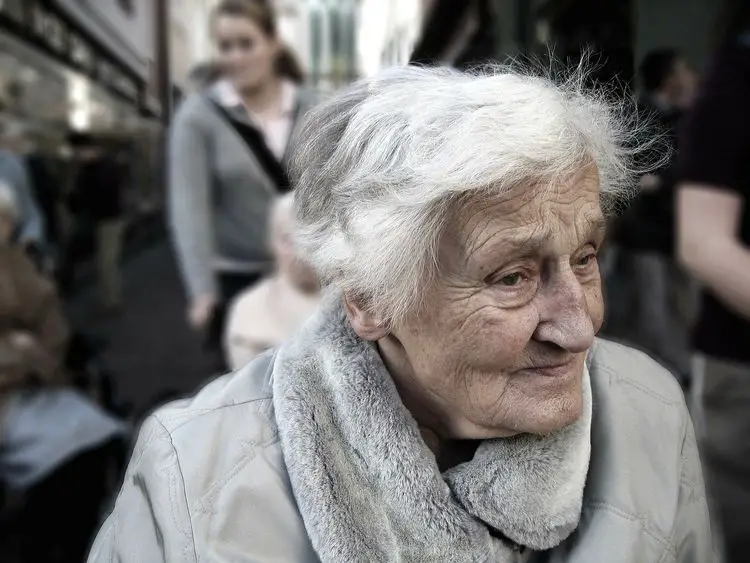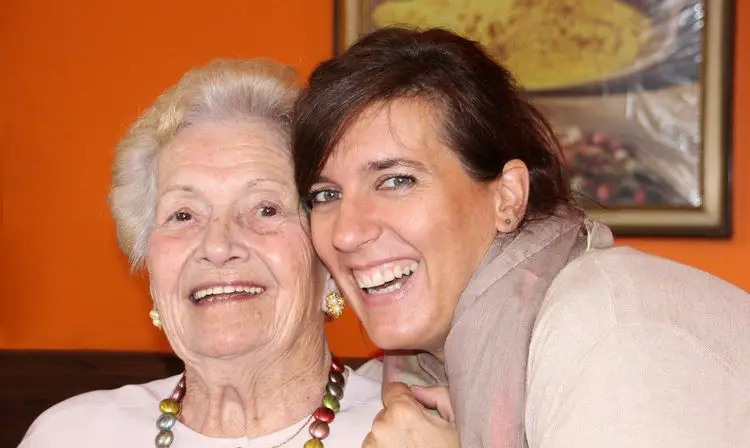The generally accepted definition of gerontophobia is that it’s an irrational fear and loathing of the elderly. Sufferers may find themselves avoiding situations where seniors are present, in order to minimize their symptoms. When in the presence of the elderly, sufferers may experience a range of physical and emotional symptoms that are closely related to other forms of anxiety and panic disorder.

Gerontophobia: the irrational fear of elderly people
Gerontophobia (from Greek gerōn, “old man”), the irrational fear of the elderly, may stem from one’s own fear of growing older and dying, which in turn may be a result of contemplating being alone in one’s twilight years and in death. The phobia is most often found in individuals who have passed the age of 50 and are confronted with very real thoughts and sensory input (from pop culture, etc.) around the subject of growing old — getting gray hair, losing one’s strength and vigor, and suffering from limited mobility and minimized interaction with friends and family. Gerontophobia is essentially the opposite of healthy aging.
The mental dysfunction often results in feelings of aversion or disgust when in the presence of seniors. Sufferers of gerontophobia cannot explain their revulsion in reasonable terms — the phobia defies logic — and therefore experience a secondary fear that comes from knowing one’s own emotional response is pathological. This can bring about panic attacks, feelings of hatred, and a generalized horror about something that is beyond one’s control.
Nearly everyone has experienced or does experience a fear of growing old and facing one’s own mortality, but only people with gerontophobia become pathologically obsessed with the idea enough so that it makes them fear older people.

Mental and physical symptoms of gerontophobia:
- shaking, quivering, heart palpitations, and elevated breathing rate — these are general symptoms of all kinds of anxiety, and the physical manifestations of fear. They can be treated with medicines or deep breathing / meditation exercises.
- breathlessness, sweating, panic — these are other manifestations of a phobia when confronted with that which one fears, which in extreme cases can lead to an adrenaline rush and evoke the “fight or flight” response.
- obsessive fear of age-imposed limits on one’s lifestyle — this refers to the inability on a sufferer’s part to stop thinking about the scary parts of growing older, as mentioned above — limited mobility and opportunity for socialization.
- obsessive fear of losing one’s youthful attractiveness — women, as they’re fed constant information in pop culture and social media about the importance of being beautiful, bear the brunt of this symptom, which can cause deep sadness as well as fear.
- self-imposed isolation — some sufferers choose to remain outside their usual social circles and spend time alone, in order to avoid contact with elderly people or in order to hide the other, more obvious symptoms of the phobia.
- persistent thinking about death and dying — the inevitability of passing away in the future can be a triggering thought for sufferers of gerontophobia, and can become a frightening obsession.
It’s important to note that gerontophobes are not to blame. A very complicated set of stimuli, including mass media’s focus on youth and beauty combined with constant social cues that underscore the importance of living a full life and being surrounded by loved ones when one is about to pass away, these factors and others, when they combine to trigger true gerontophobia, are beyond the control of the sufferer. It may be hard for elders to recognize that the disdain shown to them by a gerontophobe is not personal. Some sufferers are not even aware that their fear is irrational, and they may exhibit a certain meanness toward seniors that subconsciously reins in their fear response. The emotions involved are delicate, interwoven, and hard to understand. When dealing with gerontophobia, sympathy and recognition of the phobia’s nonsensical nature are necessary.
Treating Gerontophobia
According to the Mayo Clinic, the most effective treatment of a phobia is a therapy called “exposure therapy,” where the patient is gradually shown images or put in situations where the source of their fear is present, but in a controlled manner. For example, a gerontophobe might be shown images of families in the safety of their doctor’s office and with constant encouragement and support during the viewing. Eventually, if all goes according to plan, the phobia sufferer will be able to look at images of the source of their fear until the fear response is nullified.

In other cases, different therapies may be tried. One example is CBT or cognitive behavioral therapy, where the patient is taught through exercises to recognize their own fear response and use physical methods — deep breathing, self-distraction, etc. — to minimize physical manifestations of anxiety and fright.
Finally, a medicine or medicines may be prescribed to chemically induce a more tolerant and less fearful response when in the presence of, in this case, elderly individuals. With luck, these techniques used alone or in combination will assuage the negative emotional response the patient has been suffering from.
Closing Thoughts
The most important thing we can say in closing is this: if these symptoms sound familiar to you because you experience them yourself, if you think you may suffer from gerontophobia, seek help. Many have undergone successful therapy regimens and have overcome their fear, and we hope you can do the same. Be ready to do some diligent work under the eye of your provider, and be honest about your progress or lack thereof.
Gerontophobia is a condition not to be taken lightly. We wish you the best. Try exposure therapy and any other avenue available to you.
Finally, as always, share your stories in the comments section below.

4 comments
Persecution by younger people has become a common thing in the UK. Every where you get called old gimmer and the like. I am 65 got a big white beard and ride a 1200cc Harley Davidson sportster. I still do kick boxing and love surprising little bully’s when they get close enough to mangle.
I’m 15 & the thought of growing up scares me so bad till the fact that I just want to give up on myself and let life happen I want to be a child forever I’m not ready to be anything pass 18 I’ll rather just die literally it changes my mood I can’t stop thinking about it I try to brush it off but nothing works I’m so scared bro
Thanks for your comment, Asia. You’re young to be thinking about this, but you’re not alone. You should consider speaking with a professional to address your fears.
I am living in india. I think i am suffering from gerescophobia. Could you pls where can i get treatment? I dont know where can i get help.